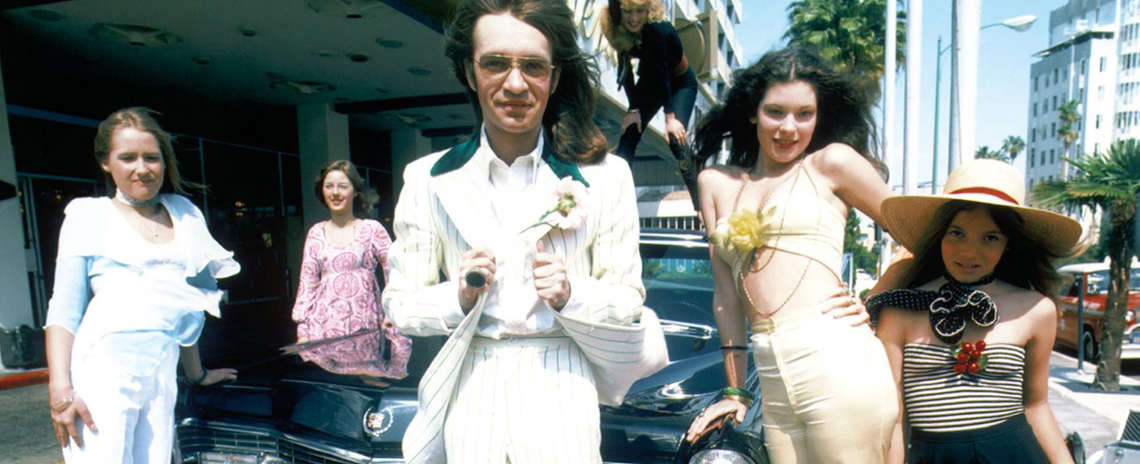Originally published in St. Louis International Film Festival program, November 2002
There’s a word I use to describe George Hickenlooper. And it’s not a word that would have even occurred to me when I first met him. Because on first meeting him, George seems to be the very antithesis of this word.
I first met George in the early 1980s — he would no doubt remember the exact date better than I. He was an aspiring filmmaker, he hadn’t yet gone to Yale, and he was in Los Angeles taking a special summer film class at the University of Southern California, my alma mater. My partner, Bob Zemeckis, and I were guest speakers on that day in this class, and afterward George came over to us, introduced himself, played up the St. Louis connection with me, and asked if he could show us an 8mm film he made. I remember he seemed nervous and ill at ease; his voice even cracked a bit. But we certainly couldn't say no because not too many years before, we’d been just where George was now, eager to show any Hollywood professional our work. “Do unto others …”
So, a few days later, George came over to my house with an 8mm projector he had procured from somewhere — neither Bob nor I had one anymore — and showed us a short black-and-white war movie. It was an impressive film, far better than the majority of student films we’d seen, and was even more impressive in that it was made by someone who had not taken any film classes. On a personal level, George struck me as sensitive, mild-mannered, and artistic. He told us he had his heart set on getting into USC, and we told him we’d write a letter of glowing recommendation for him. Which we did.
George kept in touch with me and, after some time, informed me that he had been accepted at USC … but without a scholarship. And without a scholarship, he couldn't afford to go. However, he had gotten a scholarship at Yale, which had a fledgling film department. So George went to Yale.
“Yale Film School,” I thought. Right. What kind of film school could they have in, of all places, New Haven? I wondered what would happen to this young man, who’d had his heart set on a Hollywood career, after going Ivy League.
George occasionally kept in touch with me; I seem to remember that one or two of his Yale student films were shown in some film festivals.
And then I didn’t hear from him. Or hear about him. For a long time. Had he given up? Had he opted for the less stressful existence of industrial filmmaking? Or had he “gone intellectual” and become a professor at a film department somewhere?
Then, in 1991, came his documentary Hearts of Darkness. And his book, Reel Conversations. And they were GREAT! No, George hadn’t given up, and he hadn’t compromised. George had worked and fought and starved and kicked and scratched and beaten down doors and persevered. And succeeded. The fellow I thought of as mild-mannered and sensitive and artistic was also something else: relentless.
Yes, that's the word: relentless. And George remains relentless.
When George gets knocked down, he gets right back up, just like Marlon Brando at the end of On the Waterfront. And he’s been more than knocked down: He’s been stabbed in the back, and cheated by “friends,” and screwed over, and has had the rug pulled out from under him over and over. I’ve met plenty of people who've thrown in the towel after putting up with just 10 percent of what George has dealt with in his career.
But George keeps going. Through “Some Folks Call It a Sling Blade” and The Low Life and Dogtown, and onward with The Big Brass Ring and The Man From Elysian Fields, and now deep into Mayor of the Sunset Strip, George has always kept going. Because he's relentless.
Amazingly enough, George also remains one helluva nice guy. Sure, he's more cynical than he was 20 years ago … but who isn’t? Yet through his rough-and-tumble journey, George has kept his integrity intact. Which happens to be a recurring theme in his films (this, I suspect, just might have something to do with that St. Louis upbringing). And knowing George as I do, I’m certain that he will maintain his personal integrity. Relentlessly.
Thus, I am delighted to join all of St. Louis in honoring George on this wonderful occasion. In my humble opinion, no one is more deserving of the Cinema St. Louis Award. His outstanding body of work clearly makes him worthy. But when you couple that with his character, how could there be another choice?
So raise your glass to my friend, the Relentless George Hickenlooper!
Congratulations, George!


